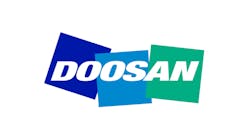Boeing Co. has received a new contract from communications technology provider Inmarsat to build three Ka-band satellites that will expand its current mobile satellite services fleet. The value of the contract was not reported, but Inmarsat has confirmed it is investing $1.2 billion in a new fleet of next-generation satellites in response to a shift in demand from voice communications to data services.
The Boeing units, to be known as Inmarsat-5 satellites, will allow Inmarsat to adapt to changes in subscriber usage, involving high data rates, specialized applications and evolving demographics over a projected 15-year service. Inmarsat will arrange the launch of the satellites, which Boeing will design to be compatible with the Ariane, Sea Launch, Proton, and Atlas launch vehicles.
Separately, Boeing entered into a distribution partnership with Inmarsat to provide L- and Ka-band capacity to key users within the U.S. government.
Boeing’s contract, a fixed-price deal, with options, calls for it to build three 702HP commercial spacecraft with 89 Ka-band beams that will operate in geosynchronous orbit with flexible global coverage. The new satellite series, to be known as Inmarsat-5, draws on Boeing's 40 years of experience with satellite technology and Ka-band satellite communications systems. It claims to have produced more than 175 commercial communications satellites and its extensive expertise in Ka-band satellite communications systems.
"This contract represents a best-value solution that combines Boeing's unmatched commercial satellite heritage and Ka-band satellite communications experience to meet Inmarsat's satellite requirements," stated vice president and general manager Craig Cooning of Boeing Space & Intelligence Systems. "Boeing has produced more Ka-band satellite communications systems than any other manufacturer, and we are currently producing the Wideband Global SATCOM satellite series, which is the primary Ka-band system for the U.S. government. We are committed to a successful partnership with Inmarsat for this newest addition to their service fleet."
